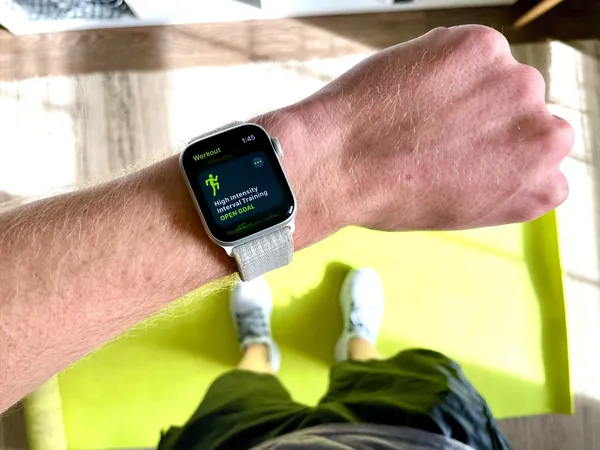
Could Smartwatches Be the Key to Controlling Diabetes? New Research Suggests Yes!
2025-03-27
Author: Li
Introduction
Recent research has uncovered that wearable health technology, particularly smartwatches, could significantly aid individuals managing type 2 diabetes (T2D) by enhancing their exercise routines. This groundbreaking study, which involved participants from Canada and the UK, highlights how these devices can motivate users to adhere to their exercise regimens, thereby helping to control their condition more effectively.
The MOTIVATE-T2D Study
In this study, dubbed MOTIVATE-T2D, researchers analyzed the behavior of recently diagnosed T2D patients as they participated in a home-based physical activity program. Among the group, those who utilized smartwatches linked to a health application on their smartphones exhibited greater success in initiating and maintaining consistent exercise habits. Remarkably, the study maintained an impressive 82% retention rate with 125 participants over a span of 12 months.
Health Benefits
The findings, recently published in BMJ Open, unveil a plethora of health benefits linked to the intervention, including improved blood sugar levels and reduced systolic blood pressure. Co-author Dr. Katie Hesketh from the University of Birmingham expressed optimism about the outcomes, stating, "Our findings support the feasibility of the MOTIVATE-T2D intervention. This paves the way for a full-scale randomized controlled trial to investigate its clinical and economic effectiveness further."
Improvements in Health Metrics
Not only did researchers document improvements in glucose levels and blood pressure, but the program also related to lower cholesterol and enhanced quality of life for participants. The structure of the program encouraged incremental increases in purposeful exercise, with the goal of achieving 150 minutes of moderate-to-vigorous activity each week by the conclusion of the six-month trial. Physical activity was supported by a behavioral counseling service led by exercise specialists through virtual platforms.
Personalized Exercise Plans
MOTIVATE-T2D particularly emphasized the role of biofeedback and data sharing in crafting personalized exercise plans. Participants had access to a smartwatch equipped with a 3D accelerometer and optical heart rate monitor, which synced to an online coaching platform, providing tailored guidance and tracking progress.
Integration of Exercise into Daily Life
Dr. Hesketh elaborated, "The program incorporated various workouts, including both cardio and strength training, that participants could perform without the need for a gym. It is designed to integrate exercise as a sustainable part of daily life for those with type 2 diabetes, thus improving their physical fitness and mental well-being."
Trial Demographics
The trial specifically recruited individuals aged between 40 to 75 who had been diagnosed with T2D within the past five to 24 months and were managing their condition through lifestyle changes or Metformin.
Conclusion
As diabetes continues to pose a significant global health challenge, the integration of technology and personalized care may offer new pathways for effective management. As we delve deeper into the capabilities of smartwatches and wearable technology, the potential to mitigate chronic illnesses like diabetes is becoming increasingly clear. This exciting research beckons a future where living with type 2 diabetes may no longer mean surrendering to lifestyle constraints, but rather embracing a supported and active life. Stay tuned for more developments that might change the way we approach diabetes management!



 Brasil (PT)
Brasil (PT)
 Canada (EN)
Canada (EN)
 Chile (ES)
Chile (ES)
 Česko (CS)
Česko (CS)
 대한민국 (KO)
대한민국 (KO)
 España (ES)
España (ES)
 France (FR)
France (FR)
 Hong Kong (EN)
Hong Kong (EN)
 Italia (IT)
Italia (IT)
 日本 (JA)
日本 (JA)
 Magyarország (HU)
Magyarország (HU)
 Norge (NO)
Norge (NO)
 Polska (PL)
Polska (PL)
 Schweiz (DE)
Schweiz (DE)
 Singapore (EN)
Singapore (EN)
 Sverige (SV)
Sverige (SV)
 Suomi (FI)
Suomi (FI)
 Türkiye (TR)
Türkiye (TR)
 الإمارات العربية المتحدة (AR)
الإمارات العربية المتحدة (AR)